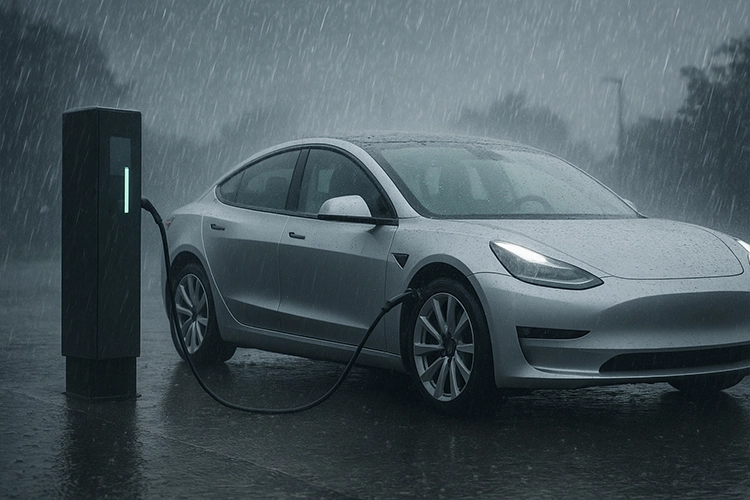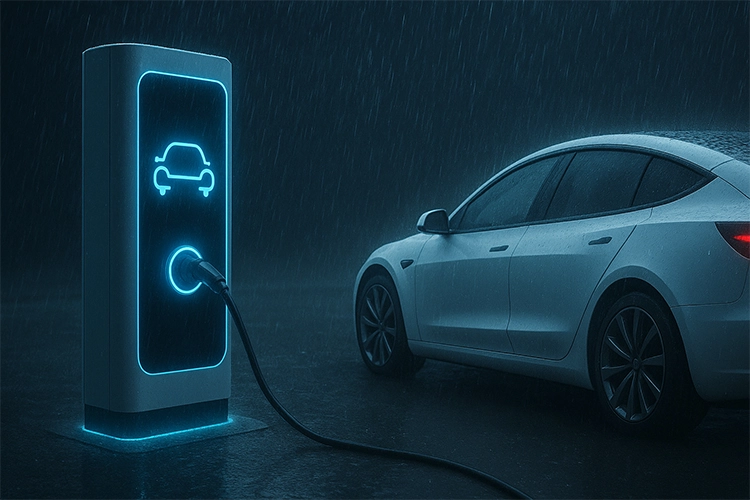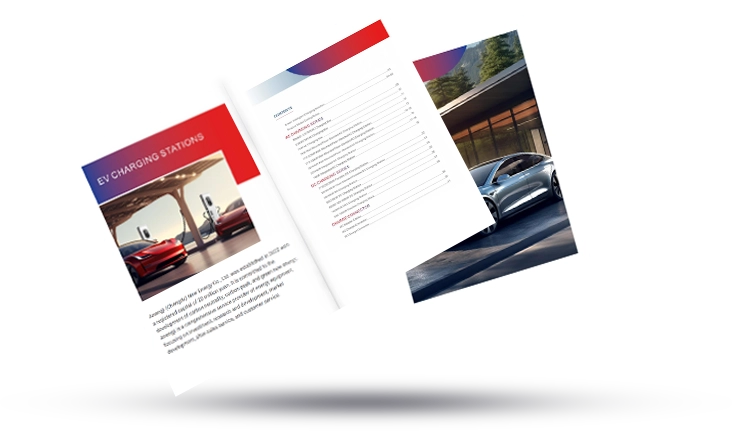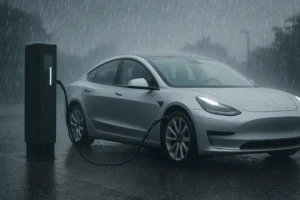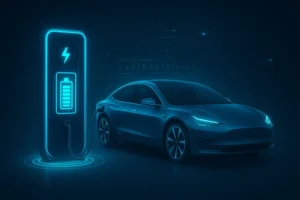Introduction
With the rapid growth of electric vehicles (EVs) worldwide, understanding safe practices for charging EV in rain is crucial. Whether at home, in a commercial parking lot, or at a multifamily property, proper precautions ensure safety and protect both vehicles and charging infrastructure. For EV charger manufacturers, factories, and commercial operators, offering products that meet these safety standards is essential for attracting global wholesale clients and B2B partners.
Are EV Chargers Safe in Rain?
Modern EV chargers are designed to handle wet conditions. Many chargers, whether for home or commercial use, come with:
IP65 or higher waterproof ratings, protecting internal components from rain and splashes.
Ground Fault Protection (GFCI), which automatically cuts off electricity if moisture or leakage is detected.
Durable and insulated connectors and cables, ensuring safe operation even in heavy rain.
This means charging EV in the rain is generally safe if you follow proper precautions.

Key Precautions When Charging EV in the Rain
1. Inspect the Charger and Cable
Always check for visible damage before starting any EV charging in the rain.
Avoid using chargers with frayed cables, cracked plugs, or damaged ports.
For factories and commercial wholesalers, quality control ensures products are rain-resistant and meet global standards.
2. Use Weatherproof Chargers
Ensure chargers are rated for outdoor use, especially for commercial projects.
EV charger manufacturers should emphasize outdoor-rated products when supplying to B2B clients.
Using indoor-only chargers outdoors can create safety hazards.
3. Keep the Charging Port Dry
Before connecting, wipe away any water droplets.
Many modern EVs have self-draining connectors, but extra caution is recommended when charging EV in the rain.
4. Avoid Standing Water
Never park your EV in puddles or flood-prone areas while charging.
Commercial properties should install chargers on elevated or well-drained surfaces.
5. Follow Manufacturer Instructions
Always follow the manual for your specific charger model.
Fast chargers or high-power commercial chargers may have additional rainy-day protocols.

Special Considerations for Commercial EV Charging Stations
Load Balancing EV Chargers help manage power safely when multiple vehicles charge simultaneously in wet conditions.
Outdoor Canopies protect public or commercial chargers from direct rain and improve durability.
Fleet and Multifamily Properties: Regular inspections ensure chargers remain safe and operational under heavy use.
For EV charger factories and wholesalers, highlighting rainproof design and certifications (CE, TUV) increases appeal to commercial buyers.
Why Choose Anengjienergy Chargers for Rainy Conditions
Anengjienergy, as a leading EV charger manufacturer and wholesaler, provides reliable solutions for both residential and commercial use:
IP65/IP66 Rated Outdoor Chargers – Safe for EV charging in the rain anywhere in the world.
GFCI Protection – Prevents electrical accidents due to moisture.
Durable Materials – Weather-resistant casing for long-lasting performance.
Commercial Solutions – Wall-mounted AC chargers, dual-port DC fast chargers, and turnkey packages for multifamily properties, offices, and public stations.
B2B Support – Bulk orders for factories, wholesalers, and commercial clients, complete with after-sales service and installation guidance.
Whether you are a property manager, commercial operator, or wholesale distributor, our products ensure safe and reliable charging EV in the rain.

Rainy Day Charging Best Practices Summary
Inspect chargers and cables before use.
Use outdoor-rated, weatherproof chargers.
Keep charging ports dry.
Avoid standing water during charging.
Follow manufacturer instructions and maintain a regular inspection schedule.
